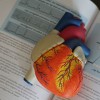
For individuals with heart problems, pacemakers can be a profoundly helpful device. These implants regulate heartbeats, either temporarily or permanently. Heart attacks and other health complications such as overdose or surgery can cause the heart to temporarily beat more slowly. read more

Multiple sclerosis (MS) is an autoimmune disease affecting the brain, spinal cord, and optic nerve. MS damages the nervous system so that the brain has difficulty communicating with the rest of the body, resulting in a host of symptoms that can vary significantly from person to person. read more

While falls leading to injury are possible at all ages, falls can be devastating to older people. According to the Centers for Disease Control and Prevention (CDC), one out of four older people falls each year. read more

Bipolar disorder usually affects teens and young adults aged 15-24, however, it can affect people of all ages. Furthermore, the number of seniors with this disorder is expected to increase as the population ages. In fact, 10% of the newly diagnosed patients today are over the age of 50. And although studies have found that bipolar disorder occurs for men and women equally, when it appears in adults over age 50, women are twice as likely to have these symptoms as men. read more

You probably have heard about hospice care and palliative care, both services to patients with life-limiting illnesses, but you might not fully understand how they are alike and different. This article addresses the similarities and differences between these two services, their typical use, how to receive the services, where the treatment is usually provided, and the payment methods involved so you have a better understanding of the two care options. read more







